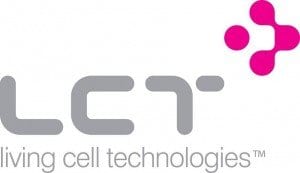 A $32.3 million rescue package has revitalized a revolutionary kind of Type 1 diabetes treatment that was on the ropes financially. The treatment uses transplanted pig cells to treat Type 1 diabetes and with the new cash infusion, the developers claim that the product will be on the market in New Zealand within three years’ time.
A $32.3 million rescue package has revitalized a revolutionary kind of Type 1 diabetes treatment that was on the ropes financially. The treatment uses transplanted pig cells to treat Type 1 diabetes and with the new cash infusion, the developers claim that the product will be on the market in New Zealand within three years’ time.
The treatment has been in development by Living Cell Technologies for over two decades and is supposed to eliminate the need for regular insulin injections among Type 1 diabetics in addition to reducing the chances of severe complications or death resulting from the disease. According to Bob Elliott, acting chief executive of Living Cell, the company was facing such a dire cash shortage that it would have closed by the end of the year.
“We had three to four months left of liquid capital,” said Elliott. “The balance sheet told you the company was going to go out of existence at around Christmas time.”
Living Cell recently announced a new deal with Otsuka Pharmaceutical Factory, a large Japanese collective that manufactures a variety of health-related products, from cancer medications and sports drinks. Otsuka is responsible for a $32.3 million cash injection to keep Living Cell afloat. Otsuka and Living Cell were already partners, but the new deal will grant Otsuka a half share of the diabetes treatment and establishes a joint venture between the two companies.
Elliott stated that not only would the partnership allow Living Cell to complete work on its diabetes treatment and have it ready for market within a few years, but it would also allow the company to ramp up work on another project—a treatment for Parkinson’s disease.
“The purpose of the joint venture is to bring the diabetes treatment to being available for treatment rather than clinical trials,” said Elliott. “There is still about two to three years of further clinical trials required to refine our process, including dose schedules, before getting the product registered.”
Living Cell’s revolutionary treatment uses pancreatic beta cells extracted from piglets. The cells and transplanted into the abdomen of an individual with Type 1 diabetes, where they begin secreting insulin in response to elevated blood glucose levels, just as normal pancreatic beta cells do. The treatment also does not require the use of immunosuppression drugs to combat tissue rejection since it encapsulates cell clusters.
Although Elliott is grateful for the cash infusion, he says that it came as somewhat of a surprise. “We’ve got somebody with substantial money coming in behind us. They see it as a good business. They are attracted to it because a couple of members of the Otsuka family have type 1 diabetes,” he said.
Researchers at Living Cell have already conducted successful trials of the treatment in humans in Russia and Auckland, New Zealand. They have also begun testing in Argentina.
Once those studies are complete and Living Cell researchers have a chance to optimize cell transplant doses, they will conduct one more series of clinical trials beginning next year. Once those trials are complete, the company will seek licenses to market the therapy internationally.
The trials conducted so far have produced successful findings: patients in the Russian trial reducing their dependency on insulin injections and the treatment successfully combated a condition in the Auckland patients in which they experienced severely low blood glucose levels. Results were varied, but the majority of patients demonstrated improvements in reliance on insulin injection and overall diabetes control.